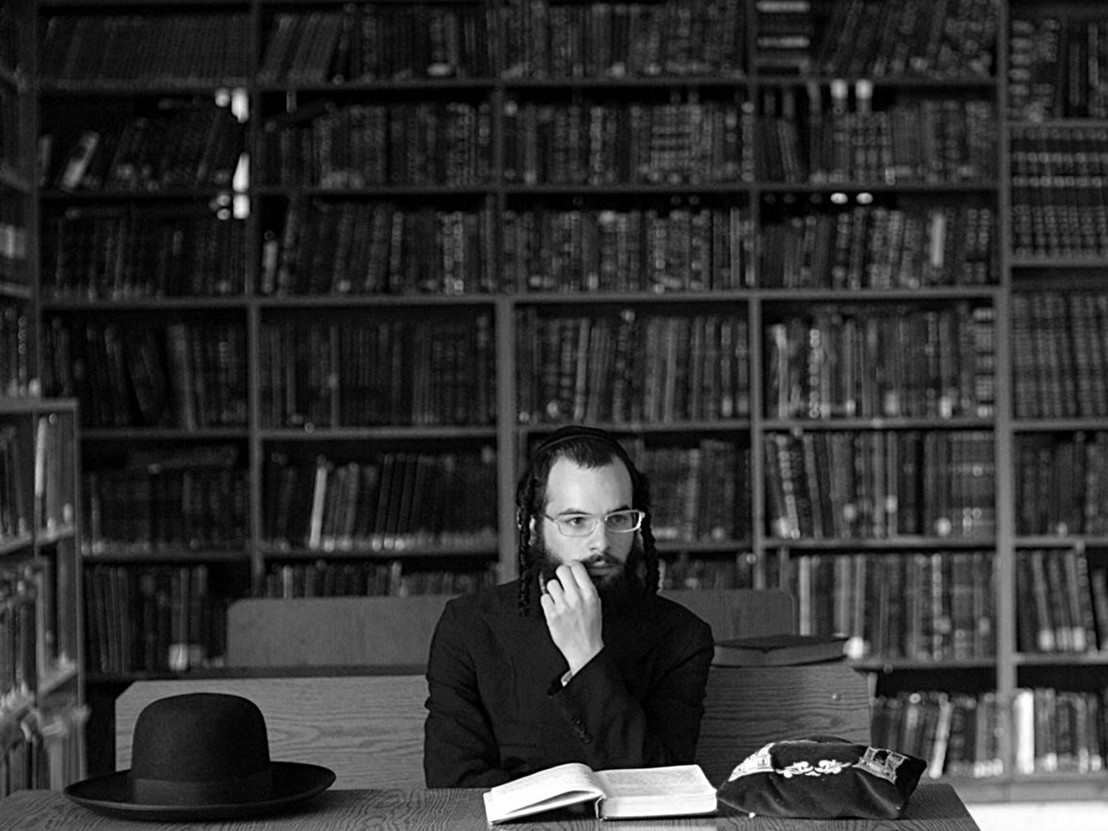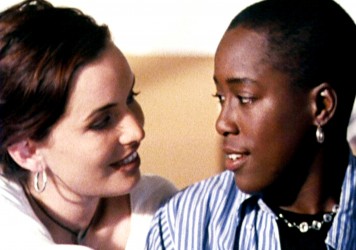
Near the end of Avishai Sivan’s Tikkun, there’s a shocking instance of disturbing bodily violation, captured in an inescapably explicit close-up that seems to last for ages within this provocative drama. It’s a moment that’s sure to unsettle and even alienate viewers, but it’s also eerily indicative of the occasionally patience-testing, sometimes stomach-turning, yet undeniably profound lengths the Israeli writer/director relentlessly drives his film towards.
Taking its title from the Hebrew word signifying “fixing” or “rectification”, Tikkun tells the story of Haim-Aaron (first-time actor Aharon Traitel), a twentysomething Hasidic student who dies in a freak shower accident. Miraculously, he comes back to life after 40 minutes, much to the relief of his family, headed by his butcher father (Khalifa Natour) who initially believes that God has answered their prayers. But their reassurance is short-lived as Haim-Aaron undergoes an all-consuming crisis of faith that pushes him deeper into the mortal world and further away from his family’s ultra-orthodox existence, making him an unruly pariah in their devout community.
Sivan presents a uniquely risky depiction of religious doubt in ways both starkly unsubtle, like the grimacing demeanors of the no-nonsense yeshiva rabbis who quickly become Haim-Aaron’s most unforgiving opponents, and dreamily figurative, like the omnipresent bugs and other animals that appear throughout the film without any manifest meaning. Shai Goldman sharp black-and-white cinematography is all the more remarkable for the fact that it doesn’t immediately call attention to itself. It simply feels right for this story, as does the static pull of Goldman’s camera and the slithery edits by Sivan and Nili Feller, which challenge us to assess the truth and significance of every single thing Haim-Aaron encounters. As he questions, so too must we.
Tikkun is enjoyable in a way that few films really are these days: its high-contrast images are striking and often pleasing on the eye, but its story, characterised by Haim-Aaron’s tiny acts of rebellion more than any overtly dramatic instances of defiance, refuses to cater to audiences expecting clarity. Like Haim-Aaron’s strenuous journey and the equally anguishing one it eventually spurs in his father, Tikkun never offers up any easy answers. It constantly requires us to wade through its fascinatingly cryptic components and come to our own conclusions. If Sivan’s means of encouraging such participation are genuinely upsetting, scarcely sentimental, and ultimately and unflinchingly devastating, so be it. The sheer daring of his filmmaking is always more of a blessing than a curse.
Tikkun plays at Film Society of Lincoln Center from 10 June.
Published 10 Jun 2016

By Dana Knight
Directors like Bogdan Mirică are challenging their national cinema’s austere image.

By Sarah Jilani
Studios are being recruited to help combat IS, yet winning over those vulnerable to radicalisation requires a new narrative.

The Watermelon Woman – the first film directed by an African-American lesbian – is among the titles screening at Liverpool Small Cinema.